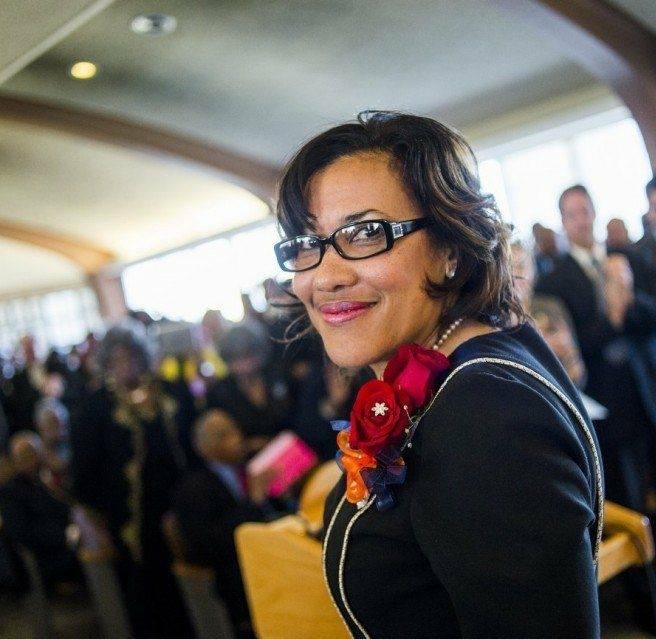Dr. Karen Weaver has been the mayor of the city of Flint, Michigan since Nov. 9, 2015, and as such has dealt with the majority of the city’s man-made water crisis that burst into national headlines in April 2014.
Clean water remains a priority for the woman who boldly declared an emergency at the city as one of her first moves in office, pushing for the same declaration at the state and federal levels.
“We’re continuing to address our water issues and changing the lead and galvanized pipes and getting lead out of Flint,” Weaver, a clinical psychologist by trade, candidly told ESSENCE.
And that plan at least is going well, as she acknowledges, “I’m excited to say that we’re ahead of schedule as far as that lead service line replacement.”
But water isn’t the only thing on Weaver’s mind.
“One of the things we always talk about is on the back of a crisis comes the opportunity for economic development and we wanted to make sure that people in the city of Flint had the opportunity to get those jobs,” she said.
Economic development is on her top list of issues to tackle, and being very intentional as well about making sure that residents of the city are the ones who benefit from those jobs. Housing is also on the top of her agenda, more specifically closing the housing gap and ensuring that all people have the tools and resources they need to be successful in the city.
“We’ve said we’re going from crisis to recovery with the water and we’ve made significant progress that we’re really proud of,” she said. “We’ve focused a lot on small business and entrepreneurship, because one of the things we have also noticed is that there are so many women that are into small business and entrepreneurship and… we [want to] give them the support that they need and the tools and the guidance and the direction so that they can make those kinds of things happen.”
And economic development is definitely close to the mayor’s heart, as she is also an entrepreneur, owning a small business that sells natural hair, skin and body products, at first, starting out selling products at a flea market.
“I think that’s part of why I wanted to focus on economic opportunities for people in the city of Flint and letting them know that you never know when an opportunity is going to come and it can start at a flea market and grow into something,” she said.
Weaver has been serving her community long before she ever became mayor, Flint’s first female mayor, on top of that. From 2000-2010, she served as the Director of Behavioral Services at the Mott Children’s Center in Flint, from September 2012 to March 2014, she was the Cheif Operating Officer of Ennis Center for Children in the state. She has also served in the Flint and Genessee County Community in various leadership roles and has also served as the Flint NAACP Freedom Fund Chair since 2012.
In this particular role, she clearly has her work cut out for her but the politician, for her part, remains grateful that she can make a difference in the lives of the people of the city where she was born and raised.
“What gives me the most joy about being the mayor of Flint is knowing that I’m making a difference really,” she smiled. “When you talk about what happened with Flint and having a water crisis and knowing that water is a basic human right and everyone should have access to clean affordable water, addressing all of the issues that have come as a result of that really gives me peace of mind.”
Not that working with the current White House administration makes her job any easier.
“When I think of what my city has gone through and the relationship I had with the previous administration, it was wonderful, it was easy access. We were able to talk to the president and different departments heads, they knew what was going on in Flint, they were right there for us and they had our backs,” she said. “It’s been much more difficult working with this current administration. I think it’s been a divisive administration. It’s scary. And it saddens me what’s going on right now because it doesn’t seem like the United States of America.”
But at least she has her fellow sister mayors to hold her up, as she is also one of the
many Black, female mayors featured on roundtables that will be held in partnership with PolicyLink – a national research and action institute dedicated to advancing economic and social equity that focuses on policies affecting low-income communities and communities of color – and ESSENCE.
“[They’re] female mayors, female African American mayors and I always enjoy interacting with them,” she said. “We have such a good time with each other and learning from each other and lifting each other up and supporting each other. I’m just looking forward to the shared conversation and what I can take back to my home”

